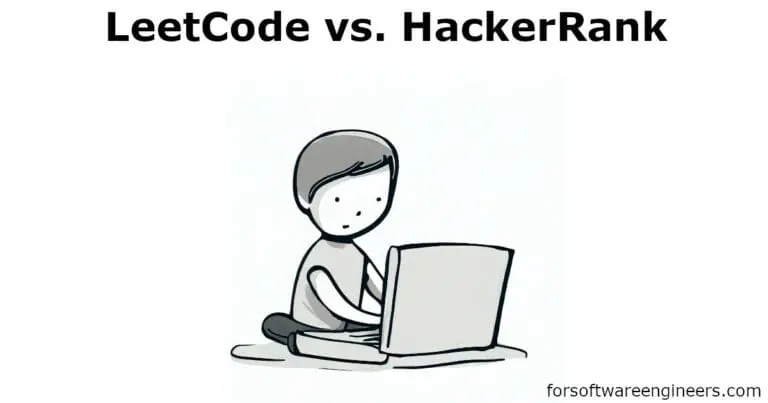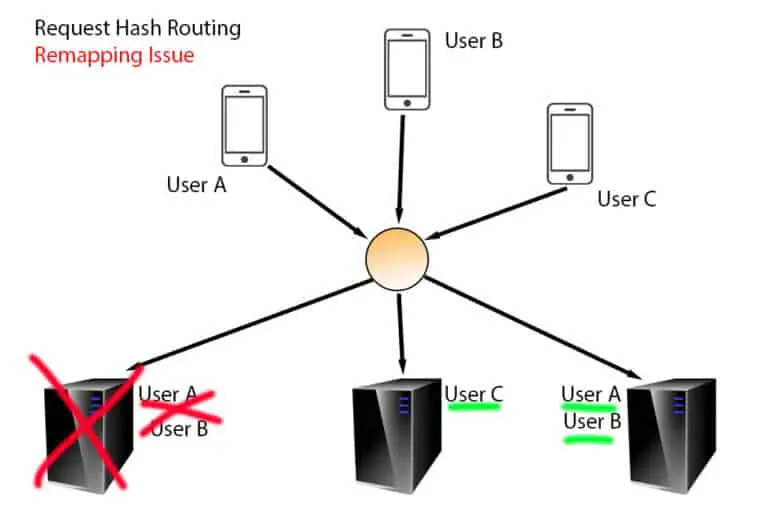The Ultimate Guide To Group Interview Preparation (Tips To Succeed)
A group interview is a type of interview in which two or more job candidates are interviewed by an employer at the same time and in the same place. The group interview is a popular type of interview for job roles in food service, retail, and hospitality.

In this article, we discuss what a group interview is in detail. We explain what kinds of questions are asked and how a group interview is different from a panel interview. Subsequently, we explain practical steps you should take to prepare and pass a group interview through actions such as preparing an introduction, listening carefully, and expressing initiative.
At the end of the article, we discuss whether software engineers do group interviews and what other types of interviews software engineers should prepare for like coding interviews and behavioral interviews.
What Is A Group Interview?
A group interview is a type of job interview format where two or more job candidates are interviewed and evaluated by an employer in the same live-interview environment, simultaneously. Multiple candidates are intended hired from a group interview, instead of one. Commonly, in a group interview, there is one interviewer within a group interview of multiple candidates. It’s possible to have more interviewers, but uncommon for the number of interviewers to equal or exceed the number of interviewees.
The candidates in group interviews typically interview for the same job roles, but it’s possible (though uncommon) that they’re interviewing for different job roles.
In a group interview, the employer asks the group of candidates specific questions that they’re expected to answer (individually or collectively). The questions are either past-experience-based or hypothetical scenario behavioral questions, based on the job roles the interview is interviewing for. Sometimes, there’s a simulation or activity that the interviewees (together) are expected to do to express the answers to behavioral questions based on their interactions with each other, actions they take, and words they exchange.
The group interview is one of the rarest types of interview types that’s conducted.
How Is A Group Interview Different From A Panel Interview?
A group interview is different from a panel interview because of the composition of the number of interviewees and interviewers. A group interview has multiple interviewees getting interviewed by an interviewer, and a panel interview has one interviewee getting interviewed by multiple interviewers.
The image below expresses the different compositions of people within group interviews vs. panel interviews.

The hiring intention between both interview formats is also different. Group interviews are used to evaluate and hire multiple candidates at the same time, with moderate confidence. Alternatively, panel interviews are used to evaluate and hire individual candidates with high levels of confidence because more interviewers are intently involved with a single candidate. Also, the preparation to pass panel interviews is different from preparing for group interviews.
How Do You Pass A Group Interview?
You pass a group interview by exemplifying to your prospective employer that you’re a great candidate for the roles they’re hiring for based on the skills and experience they’re looking for. Employers expect their interviewees to express teamwork, leadership, and interpersonal communication skills, within their group interviews to get hired for the job.
In the sections below, we discuss practical steps you can follow as an interviewee to improve your chances of passing a group interview and getting hired. For each of the steps, we’ll define what it means and why it’s helpful to demonstrate to your employer that they should hire you.
1. Prepare An Introduction
Preparing an introduction for a group interview means creating and memorizing a brief summary of yourself that includes your background, skills, and experience. It’s helpful because it gives your interviewer a strong first impression and sets the tone of your competencies for the rest of the interview.
The image below shows 3 examples of introductions for people in group interviews based on their prior experience and the job roles they’re interviewing for.

Having a prepared introduction for a group interview allows you to demonstrate to your employer that you’re organized and self-aware.
2. Listen Carefully
Listening in a group interview carefully means focusing intently on what your interview and group interviewees are saying, and understanding what they say instead of assuming what they say.
Listening carefully to your interviewer will allow them to understand that you’re a good listener who can understand and fulfill tasks correctly. Listening carefully to the rest of the interviewees will allow your interviewer to understand that you’re able to understand multiple people correctly if you incorporate their feedback into your answers and tasks during a group interview.
3. Express Initiative
Expressing initiative during a group interview means pushing your ideas or solutions in front of everyone without being prompted. This shows employers you’re proactive and willing to take charge and responsibility when it is necessary, emphasizing your leadership skills.
However, this doesn’t mean that you shouldn’t let anyone else have the opportunity to express initiative. While you should express initiative during a group interview, you’ll want to allow other interviewees to express initiative if they can. Otherwise, you’ll be viewed as someone who is not a team player, a negative signal toward getting hired.
4. Communicate Clearly and Confidently
Communicating clearly and confidently in a group interview means articulating and vocalizing your thoughts in a straightforward way, without hesitation. Clearly communicating in a confident way allows you to express to your group interviewer that you understand the subject being discussed and can convey information effectively. This is a form of expressing soft skills or interpersonal skills.
5. Maintain Respect
Maintaining respect in a group interview means treating everyone, both interviewers and group interviewees, with courtesy and respect. Examples of this include not talking over the interviewer or interviewee, not being aggressive toward what anyone says, and listening attentively to whatever anyone is saying.
Maintaining respect during a group interview allows you to demonstrate that you’re a team player who can work well with others to your interviewer.
6. Show Appropriate Body Language
Showing appropriate body language in a group interview means presenting yourself with open and positive body gestures such as maintaining eye contact, having your body face the speaker, and expressing your body in a way that shows you’re being present in the interview.
Appropriate body language communicates traits such as enthusiasm, attentiveness, and professionalism to your interviewer, which are key signals they look for when hiring candidates.
7. Involve Yourself With The Group
Involving yourself with the group in a group interview means engaging with other candidates by contributing to discussions and collaborating on tasks. Actively participating shows that you’re a team player and value collective success, additional skills that group interviewers look for in their candidates.
8. Prepare An Appropriate Outfit
Preparing an appropriate outfit in a group interview means wearing clothes that fit the company’s culture and the role you’re applying for. Dressing appropriately signals to employers that you’re serious about the position and understand the company’s values and standards. It also helps set a good first impression that amplifies the expression of your other positive skills and traits that you show during an interview.
Do Software Engineers Do Group Interviews?
No. Software engineers do not do group interviews within their software engineering interviews. Group interviews do not provide software engineering candidates with the correct environment to be evaluated as software engineers, so other types of interview formats are used to evaluate software engineers.
What Types Of Interviews Do Software Engineers Do?
Software engineers will do interviews such as coding interviews, behavioral interviews, panel interviews, phone interviews, and exit interviews, depending on their stage in the hiring process. The most common types of interviews for a software engineer are behavioral interviews and coding interviews.
What Is The Most Important Interview For Early Career Software Engineers?
The most important interview for a software engineer to get hired is the coding interview for early career (intern and new graduate) software engineers. Because early career software engineers are expected to code on the job, they’re heavily evaluated on their coding skills through an interview about coding.
It’s essential for a software engineering candidate to learn how to pass a coding interview, to pass the overall software engineering interview process at any tech company.
How To Get Better At Solving Coding Interview Problems?
To get better at solving coding interview problems from interviews about coding, you should practice solving as many coding interview problems as you can in the way that’s evaluated during a real interview. Without practice, the problems are not easy to solve, and you’re likely not going to give the interviewer enough positive signals to get hired.







